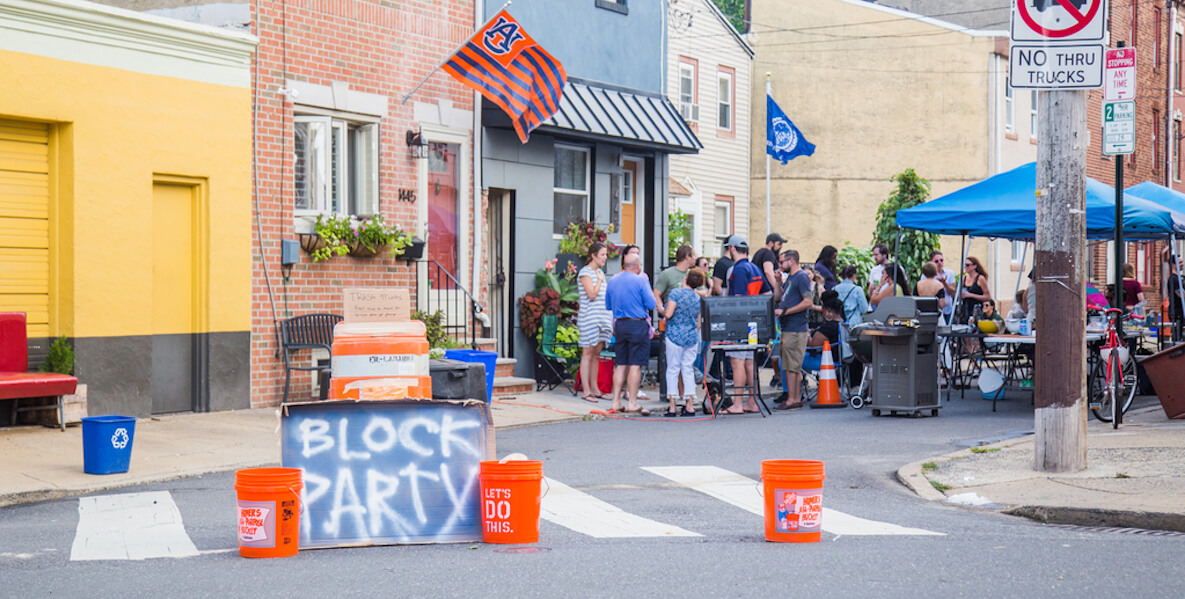“Empathic distress.” I first heard this phrase in an Adam Grant essay about it. Grant defines empathic distress as “hurting for others while feeling unable to help.” So many of us are feeling this emotion nowadays, given the wars and climate catastrophes across the world.
In his essay, Grant suggests that a good way to deal with empathic distress is to convert your empathy into compassion. Because when we feel empathy, we ache; and when we have no way to be helpful, we withdraw and are paralyzed. Compassion is “not assuaging distress but acknowledging it.”
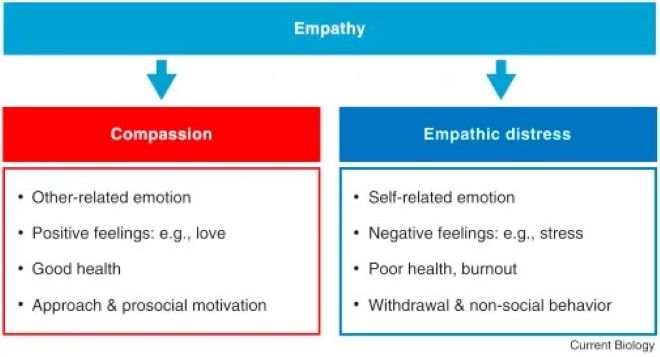
Grant shares the example of “ring theory” by Susan Silk, which proposes that when there’s a trauma, imagine a dartboard, with the trauma at the center.
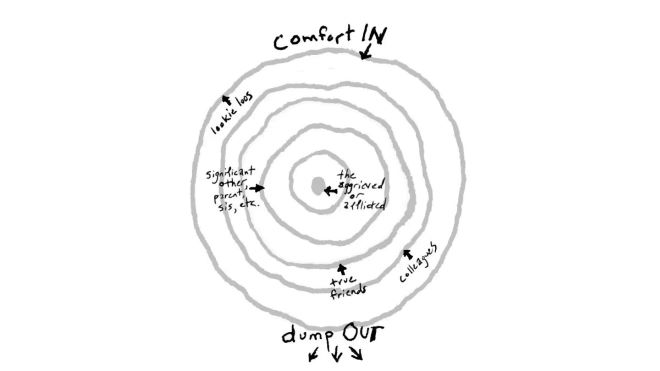
Grant uses this theory to describe a way to respond to the current war in Israel and Gaza:
The victims of violence in Israel and Gaza are in the center ring. Their immediate family members and closest friends are in the ring surrounding them. The local community is in the next ring, followed by people in other communities who share an identity or affiliation with them. Once you’ve figured out where you belong on the dart board, look for support from people outside your ring, and offer it to people closer to the center.
I like this way of thinking, I like supporting others, but my distress these days is not just for the suffering of others. I’m distressed because I want the world to be a better place, and when I’m at the edge of the dartboard, I often feel like there’s no way to impact the center of it.
Help is on your street
Instead, I’ve been thinking lately about the power of focusing on one’s immediate surroundings.
A few months ago, my block got a new block captain. He took initiative and bought a trash can, locked it to a street sign, and every week he empties it for municipal trash pick up. I love that he took this initiative, made no announcement out of it, and is humbly providing a benefit to our neighborhood without any acknowledgment.
He sends out a weekly email to our block about local issues and events, and he’s been able to organize a block clean-up and our first-ever block party (which unfortunately got rained out). Neighbors have leveraged the distribution list: I used it to fundraise for our local public school; another couple notified the block about a play they’re performing in. Our block captain hasn’t done anything radical, and yet he’s shown how one person taking leadership in a small, defined area can produce tangible, meaningful results. In other words: he’s made the little world of our block better.
Could a focus on your own block or neighborhood be a way to find meaning and connection in these distressing times and a way to combat the fatigue of empathy? Could there be something regenerative in seeing improvements, no matter how small?
Or on a school street
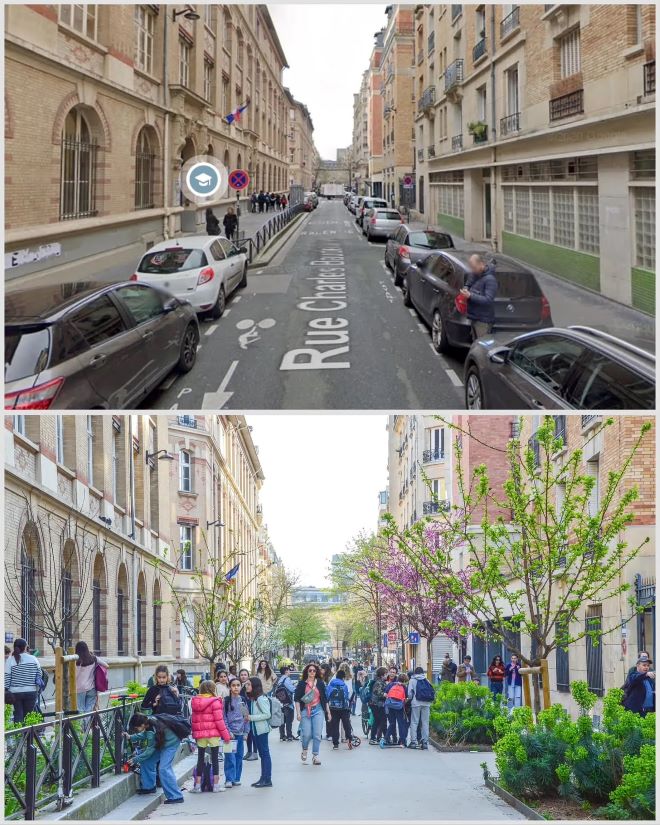
Think of Paris’s school streets. There’s a reason why the urbanism world is obsessed with them, and it’s not just because of the amazing before-and-after photos. Fighting climate change, addressing the in-person social needs of kids, and trying to fight back against car culture can seem insurmountable — but a school street is a simple and relatively small way to address all those things.
Yes, we also need larger changes, like the Inflation Reduction Act, which is perhaps the largest investment in reducing carbon pollution in U.S. history. We also need systemic changes, like investing in public transportation and greater educational equity.
But the school street is a tangible change that people can see every day in their neighborhood. You can’t dismiss the importance of the local, especially when people don’t “feel” like the Biden administration has done enough for the economy or environment. More in-person experiences can help us move beyond a world of just vibes.
School streets also send a message to young children that their world is malleable and can be improved.
When we are concerned about war and famine, it can feel silly and futile to focus on hyperlocal solutions, like creating a pedestrian island out of a parking lot. But the beauty of tactical urbanism projects is that they work as metaphors.
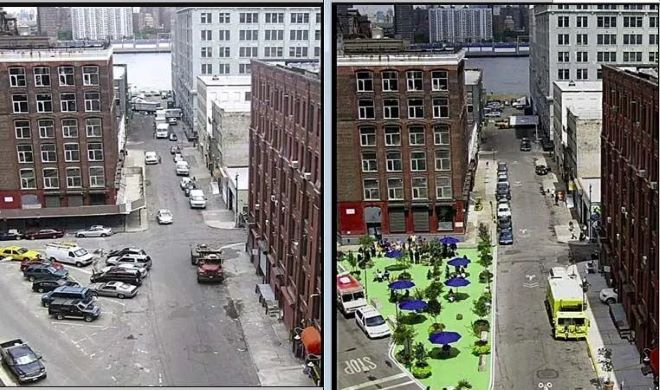
Literally the photo above shows what happens when you transform a parking lot into a plaza; metaphorically, this transformation is a demonstration of valuing social interaction, the vibrancy of physical spaces, and a willingness of local government to test new ideas and ways of doing things.
Diana Lind is a writer and urban policy specialist. This article was also published as part of her Substack newsletter, The New Urban Order. Sign up for the newsletter here.
![]() MORE FROM DIANA LIND’S NEW URBAN ORDER
MORE FROM DIANA LIND’S NEW URBAN ORDER



